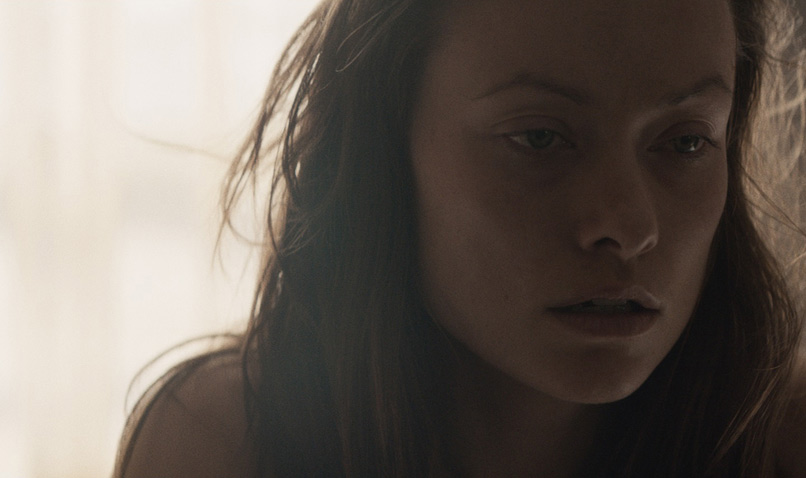
We’ve all endured enough gruelling Sundance movies to recognize that grief and the indie film can be a deadly combination when they run unchecked. Worse, beyond just excruciating miserablism, the inherent characteristic of shattered life movies in the wrong hands can also take the form of strange, misguided fantasy—imagine how you might feel if you had to suffer living through this kind of personal trauma. Moreover inauthentic, fraudulent notes can feel like shameful tourism to an audience,exploiting someone else’s personal horror for the sake of drama.
Grief not rendered honestly in movies is incredibly tricky to overcome and these issues and problems certainly come up in “Meadowland." The directorial debut of celebrated indie cinematographer Reed Morano (“The Skeleton Twins,” “Kill Your Darlings,” “Frozen River”), suffers from a clunky script, but is reinforced by its fully committed lead actors and the director’s sharp eye for mood and communicating incalculable devastation.
READ MORE: Olivia Wilde Is Back For ‘Tron 3’
While uneven in spots, and built on a shaky foundations, “Meadowland” is nevertheless a visceral and often emotionally bruising examination of grief that possesses an engrossing gut-punch quality. The picture, however, takes time to find its footing and still has its share of problems. “Meadowland” is built on a manipulative premise: a boy suddenly vanishes and the audience is barely given a chance to invest in the child or the family unit. “Meadowland” shortcuts straight to panic, and then desolation, flash-forwarding one year later to both parents, Sarah and Phi (Olivia Wilde and Luke Wilson), trying to cope with their overwhelming loss. You cannot fault an audience that feels resentful for using a child as nothing more than a calculated device to instantly engender sympathy, communicate anguish, and frame the conflicts and personal stakes these characters will have to endure in order to survive. Despite the flawed schema and perhaps its dubious motivations, “Meadowlands” does eventually earn some stripes and genuine sense of tragedy.

Both leads plunge into some open-nerve and vulnerable places, and are arguably their finest performances to date. Wilde unravels in beautiful, heartbreaking fashion and Wilson — seemingly on the comeback trail since his underrated performance in “The Skeleton Twins” — gives many scenes their raw and heart wrenching focus. Featuring strong, but brief appearances by Elisabeth Moss, John Leguizamo, Kevin Corrigan, Juno Temple, and Scott “Kid Cudi” Mescudi, all these day players are great, but “Meadowland” is certainly the Wilde and Wilson show (though the talented Giovanni Ribisi as Wilson’s troubled brother really helps precipitate some of the movie’s most convincing and moving conversations).
While some filmmakers/cinematographers decide not to take on double duty chores to concentrate on performances, acting as her own DP does not hurt Morano in the least. She has a knack for making cold images look beautiful and haunting, and that preternatural quality is in full evidence. Adam Taylor’s score (“August: Osage County”) does a lot of heavy lifting too, capturing the lost and haunted lilt of personal despondency. In tandem with the movie’s striking visuals, “Meadowland” arguably might be at its most potent when it’s acting like a music video, with a focus turned toward dialogue free performances, poetic images, and elegiac, sonorous sounds.
Still, Chris Rossi’s script is the movie’s Achilles heel, as it deals in a variety of clichés, from Wilde’s schoolteacher character seeking out a neglected boy (Ty Simpkins) in lieu of her own son, on-the-nose poetry in her classroom, and the mystical thematic callback involving an elephant introduced earlier in the movie as a representation of bonding between her and the boy.
As Wilde’s character’s self-destructive tendencies get out of hand, “Meadowland” grows increasingly distressing, even overwhelming in its depictions of pain, but the plot strains suspension of disbelief when she really goes off the rails. Morano’s got everything she needs in her toolkit, and she creates a longing, a fleeting desperate atmosphere can be incredibly moving. As dark and punishing as “Meadowland” can be, it generally avoids the trap of wallowing to the point of not letting light and hope in.
“Meadowland” is seemingly more interested in characters than it is their story. The drama is a mournful and lyrical examination of heartache and disconnection — the way Wilde and Wilson drift away from each other into their own abyss is heartbreaking — and clearly a lot of honest intention went into the film and that comes across in the tremulous emotion throughout. But atmosphere and feelings can only do so much when story, and its credible beats, seem to have fallen by the wayside. [B-]
Browse through all our coverage of the 2015 Tribeca Film Festival by clicking here.





